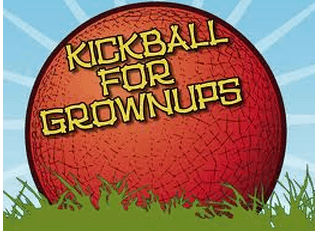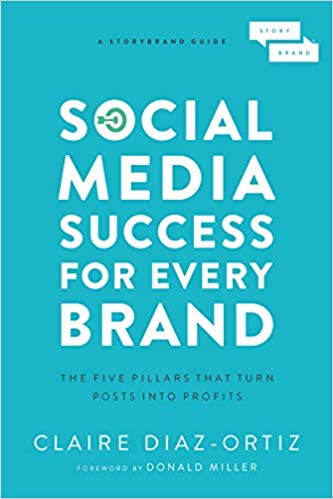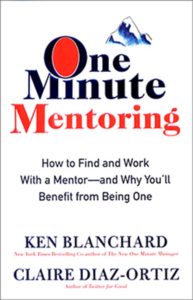This week, more than two strangers sent me emails outlining their apparently deep personal offense at the fact that I had not yet responded to their emails to me asking for things they want.
The emails were much more dramatic versions of the following:
“This is my second email in one week to you. Frankly, I just don’t understand why you haven’t responded. I’m trying to convince myself there is some email problem because I am really shocked by this.”
and
“I need you to write back, as I explained in my earlier note. Why are you tweeting if you aren’t emailing? Everyone says you are communicative, but this experience has certainly proved otherwise. Why are you doing this given that you know how important this is to me?”
Keep in mind that both emails came from people I do not know, who were asking me to do things to benefit them (not me). Such emails (which come in varying degrees a few times a month) create in me two conflicting desires.
Desire #1: Never respond to the person’s original query because they have annoyed me so thoroughly.
Desire #2: Offer myself as an email consultant to the person to explain that this is not how email works.
This kind of behavior can best be described by a bizarre term I once heard that is both immature and horrid sounding and unbelievably accurate. The term is “butt-hurt“, and my theory is that it comes from the emotions that arise during children’s playground kickball games wherein you kick balls at other people’s backsides and make them cry when you make contact. Essentially, this playground potty-talk denotes the feeling of “Shucks! Ah man! She/he doesn’t like me!” personal offense wherein one hangs their head low and croons loudly.
The main thing about being “butt-hurt” is that the hurt is disproportionate to the offense.
And getting personally offended by a stranger who isn’t responding to your email (or responding timely enough for your liking) about something that you are asking them to do for you (because we all know if it were the other way around you wouldn’t need to hear from them so urgently!), is the essence of butt-hurt.
It is also the essence of dumb.
(And the essence of annoying.)
Instead of assuming the stranger is trying to personally offend you, why not consider a few of these (Plausible! I personally promise!) conclusions:
- The stranger gets 250 emails every day and cannot respond to all her emails.
- Of those 250 emails, 100 of them are people asking for stuff (favors/insight/help/support) that does not directly benefit the stranger herself. Since the stranger cannot live her entire life doling out favors, she cannot be expected to respond favorably to all such requests.
- Your email was just not that important to the stranger.
- Your email was actually really important for the stranger but she lost the email/deleted it/archived it/forgot about it mistakenly because of the typical organizational mishaps that occur when you get 250 emails a day.
- The stranger has been sick, offline, having a baby, or otherwise engaged for the 72 hours in which your response did not come. Forgive her.
Email is an art.
Knowing how to email people you want to do things for you (especially when they have little to no incentive to do what you want them to) is an even higher art form. It’s a balancing act of gentle pitching and kindness and deference and always assuming the best about the other person’s intentions, and the worst about the other person’s free time to respond to emails. If you’re unclear of the rules of email, don’t come to the table wearing your heart on your sleeve ready for personal offense to slight you when responses are not immediate.
Many of you have (thanks!) downloaded my free manifesto — How to Be Social. In it, I lay out the top ten social media marketing mistakes people make on a daily basis. It’s an “irreverent” guide, in the same way this blog post is, because I don’t sugarcoat things.
Now I know I need to write just such a guide about the rules of behavior on email. If only to help make my email inbox a more pleasant place to be.
As I work on this new manifesto defining the basic rules of email behavior, are there any key best practices you would recommend I include? How do you tame the email beast?





This is a good explanation for how to get in someone else’s shoes who receives lots of communication. There was another good post on specific tips to get a response: http://artofmanliness.com/2012/03/01/how-to-write-an-email-that-will-actually-get-a-response/
Also, I find it helpful to create canned responses in gmail.
“Thanks. I don’t think I’ll have time for this but I wish you the best in your work.”
“Great to meet you too. Hope we can connect again down the road.”
That’s a great article, Sarah! Thanks for pointing out. This is a classic, essential and (SIMPLE) key: “The key to getting a response to your email is to put yourself in the recipient’s shoes and tailor your email accordingly.”
This post has me shouting YES! because I get tons of these kinds of emails. People assume that because I’m a service-business I am available 24/7 to ‘help’ them even if they aren’t my client. Skype is the same way. The amount of mentoring I have given away over the past 2 years could probably pay my family’s grocery bills and then some if I was charging for every email I answered. I’ve had to seriously cut back. I know it makes people upset, but I can only do so much free work for complete strangers.
Please please please cover etiquette around hitting “reply all” in response to email – nothing raises the email count more quickly and unnecessarily!
Oh isn’t that the best? Although the gmail priority inbox does help a bit with that…
I don’t understand why some people don’t reply, but compose a whole new email, saying “That was a great idea. Let’s do it soon,” or something that doesn’t reference the original topic, so you don’t know what the heck they’re talking about unless you go search for the first email.
Yes!
SO confusing!
Great piece, Claire. At the end of the day, we have to think that we’re all just human. Adding a little understanding and etiquette will go a long way. 🙂
this pretty much sums up my feelings about such emails: http://theoatmeal.com/comics/email
Now I know I need to write just such a guide about the rules of behavior on email. If only to help make my email inbox a more pleasant place to be.
I have often been impatient about people who do not email me back, but it is usually when I am the employer or client. You do have to love on those people! My biggest “must” in email is greetings. “Hello,” Good Morning,” “Talk to you later.” I have received (personal) emails from marketers wanting our business that do not say hello, do not use my name or sign with theirs. Email is not a text! Generally, you should greet people in email like you would meeting them in person.
Frankly, I’m usually surprised when I do hear from Claire. I honestly don’t know how she does it and I really wouldn’t want to attempt what she is attempting — I’m already out of my mind busy. I have a public internet presence and often receive unsolicited emails from strangers looking for help, but it’s never even 250/month. We have to get over ourselves, folks… we really do. We’ll all sleep better at night and actually have more impact on the people around us.
My heart truly goes out to those few so offended. Because I highly suspect not hearing from Claire isn’t the only source of pain in your life. May God grant you true Peace. 🙂
I can relate to this article on a slightly different note. I had recently reached out to a former co-worker of mine after I found out she left our team. I wished her all the best and asked to keep in touch. I have yet to hear back from her. I thought we had a great working relationship but I guess not. In this case a simple thank you and acknowledgement would be nice. No sense burning bridges in the professional world in my opinion but to each their own.
Having been in a “cold calling” role myself, I’m actually a little amazed and horrified of those email responses as well. It’s extremely important to have thick skin in sales – and always focus your emails on the other person and how you can add value to their lives/organization/etc.
One thing I have found that is key to making emails less annoying on both ends – keep it light!! No one wants to read a novel from someone they don’t know about something they don’t know if they’re interested in. A simple one-two line email that is both casual and to the point helps to allow the person receiving the email to know if they are interested or not quickly. Also, when you just can’t get a hold of someone – it’s always good to have the mindset that ‘they probably just haven’t gotten to it yet.’
Sadly, for those receiving so many of these emails daily – most of us salespeople learn that it sometimes takes 17+ touches for someone to even recognize your name – which also may be something to add into an inspiring/reality check post for people sending out emails and being butthurt when they don’t hear back right away.